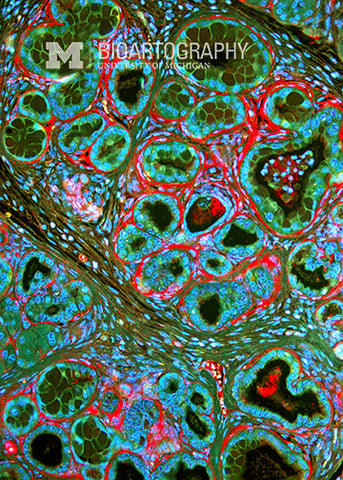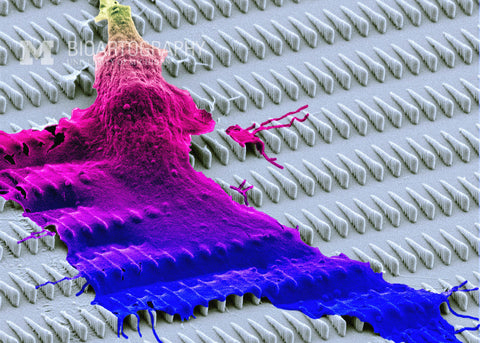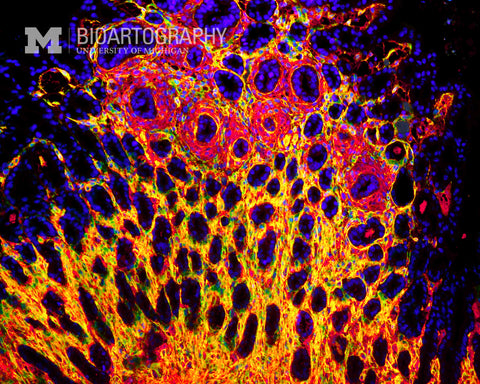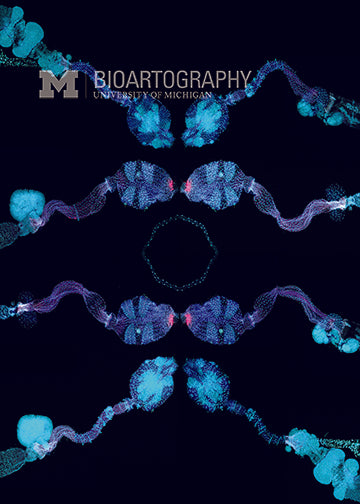
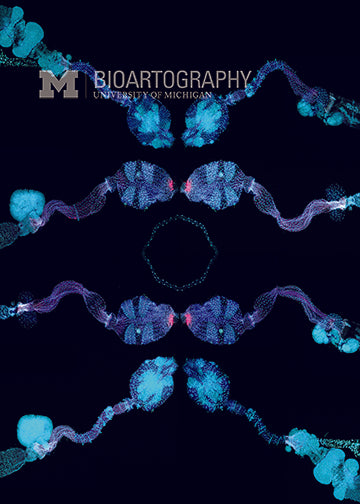
Trenton Baker, Graduate Student, Program in Biomedical Sciences, University of Michigan Medical School
After deletion of a tumor-suppressing gene in the fruit fly (Drosophila melanogaster), these flies develop tumors throughout their intestinal tract. These tumors are seen in the image as highly dense cell masses (light blue). Two of the intestines are from normal flies, and therefore have a functional tumor-suppressor gene and no tumors (can you identify which is which?). Studying gene mutations responsible for cancer in the fly helps us understand the function of that gene in human cancer.

